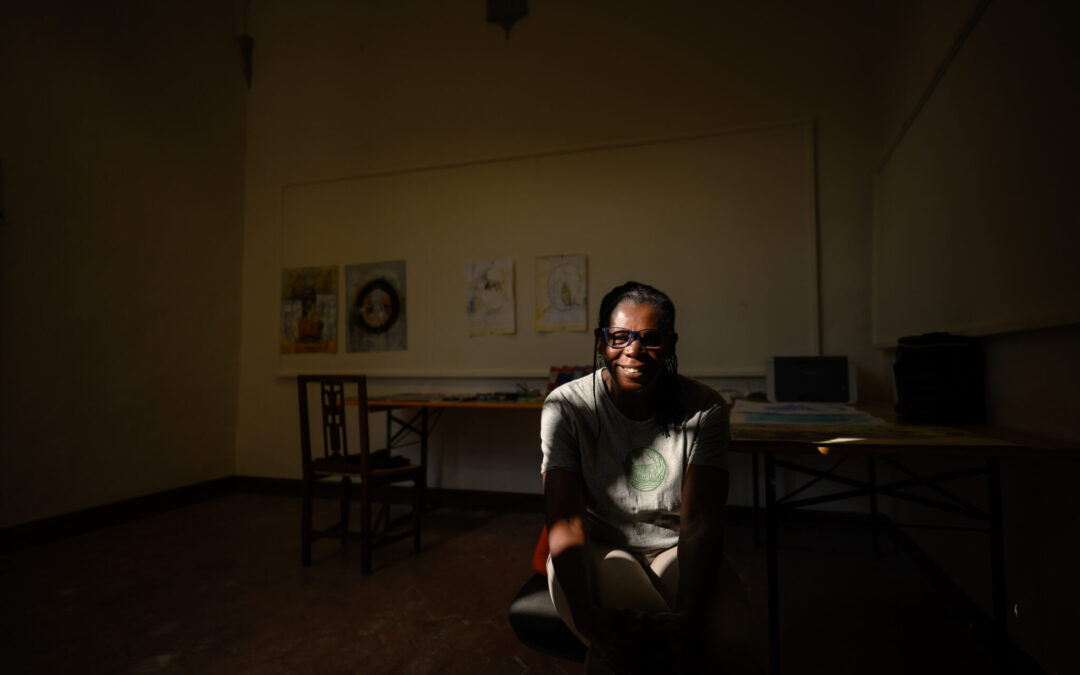Cameroonian visual artist Justine Gaga (CRF 2023) is a multiform artist whose work focuses on themes of loneliness, exile, immigration, as well as psychological fences and borders. In a recent interview with Program Assistant Greta Caseti, Gaga discussed the role of art in our society, shared her take on colonialism, and recalled memories about her residency at Civitella. Read her reflections, translated from the French, below.
Can you share an anecdote about your stay in Civitella? Is there anything that has marked you or changed since that experience?
JG: The Civitella Foundation is an extraordinary, magnificent place, especially with all its staff. It truly inspired me. A fond memory is when we walked down the covered walkway in Perugia. While standing at opposite ends of the archway, we could hear each other and communicate. Without any explanation, I immediately remembered one of my childhood games. We used empty matchboxes to create a sound, and we’d pierce a small hole through which we’d pass a long wire connecting the two matchboxes, and we could hear each other… The archway in Perugia really stuck in my memory – I’d love to go back there. I might need to make some work about it…
In your work, you focus a lot on the notion of solitude and related themes such as isolation, immigration, and psychological barriers. How can art question social injustice and inhuman practices? What is the relationship between your work and Cameroon’s colonial history?
JG: These are questions I ask myself all the time in my work. Everyone is like a grain of sand – despite each being small grains, together we make up the sand in the sea. People should understand the importance of others. With my work I want to interrogate issues of dehumanization. These questions are raised by my installation Indignation (2012), which challenges voracious capitalism.
It’s all about questioning. My work examines the consequences of colonization and shows that it is not over yet – it has only changed form. We are witnessing the phenomenon of immigration, which is constantly increasing because colonized countries are still being plundered. We need this to stop, or we’ll see very harmful consequences for everyone.
What does 2024 have in store for you and your work?
JG: 2024 will see the continuation of projects that are already underway. Cameroon is a very rich country, thanks to its natural resources, but it’s poor because it lacks real development policy. There are many talented artists but there aren’t places for them to think, spaces to help them grow and contribute to society’s evolution. This year my goal is to find funding to purchase land in the south of Cameroon, 10 minutes from the sea, to create a residency program for visual arts, theater, writing, music, and film production. I would love to connect this research center with already existing organizations to help artists professionally by creating a strong community of thinkers. I hope to achieve this.
